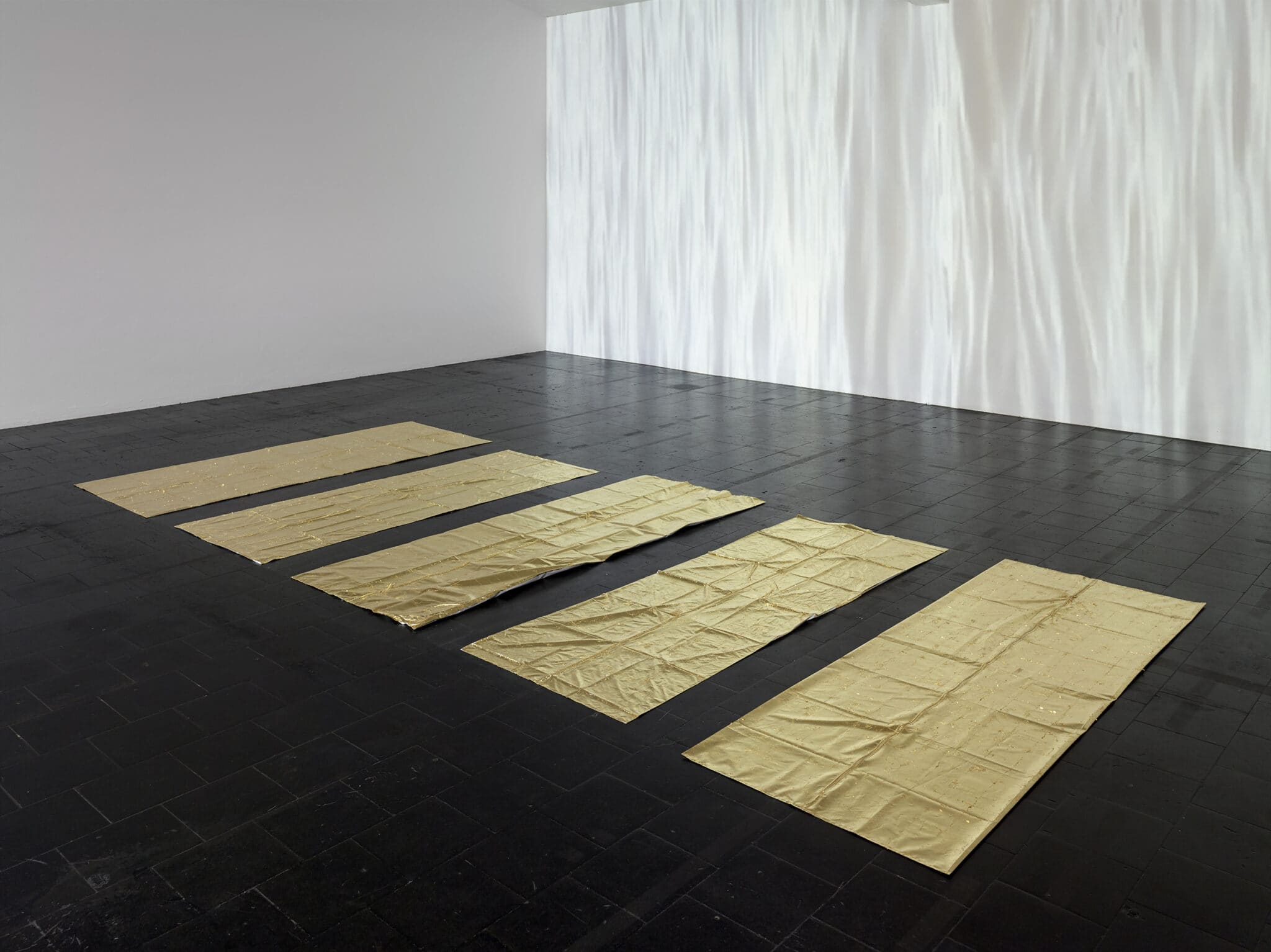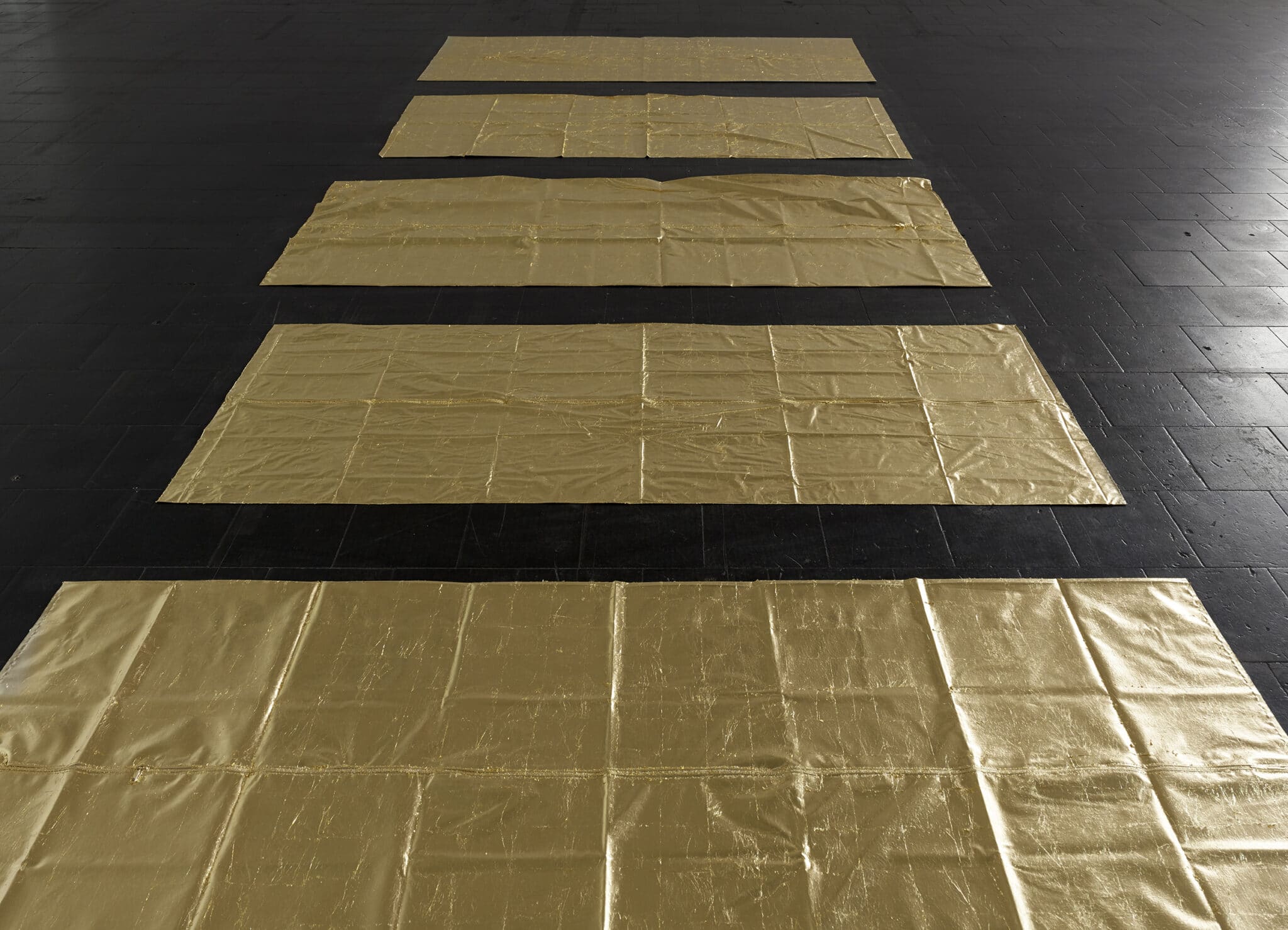Paradise Syndrome –
Belgian artist Edith Dekyndt’s first, institutional solo exhibition in Germany – describes a mental state of dissatisfaction and depression that can symptomatically appear through the fulfilment of all desires of life. The term was first used to describe retired people who have moved their residence to the Mediterranean coast or on a holiday island, and who understand their life to be a never-ending vacation without being able to perceive this as a state of good luck. This mental and physical ambiguity in subjective perception and experience is at the centre of Edith Dekyndt’s work.
For the exhibition, the artist creates an installation consisting of an wall-sized video projection and an eponymous floor piece, which was created especially for this exhibition. Spread on the black floor tiles are gold-leaf covered body bags as used, for example, in disaster protection. Footage of wave movements is projected in a vertical rotation on the wall, creating an abstract-poetic moment.
The installation is characterized by the interweaving of different contexts, histories, stories and places that provoke images and associations beyond the physically perceptible. One of these places and narrative starting points is Cologne, another the Italian Mediterranean island of Lampedusa. Both share collective and individual motivations and expectations towards an achievable earthly paradise: the journey of the relics of the Three Kings wound in coffin cloth from Constantinople, via Milan to Cologne, and the associated cult of relics that drew countless pilgrims to the cathedral city; Lampedusa as paradisical place and factual terminus of the martyrdom of migrants and refugees from Tunisia, Libya, Somalia and Eritrea on their way to Europe. More than 300 drowned in October 2013 alone, when a refugee boat sank near the island. What symbolically remains, are charged and collectively stored media images of functionally stacked body bags. With the interaction and reduced presentation of works in « Paradise Syndrome », Edith Dekyndt creates a situation in which subjective expectations and seemingly objective facts and things promising salvation are confronted with one another, and both are reflected back at the viewer.
Regina Barunke, curator


